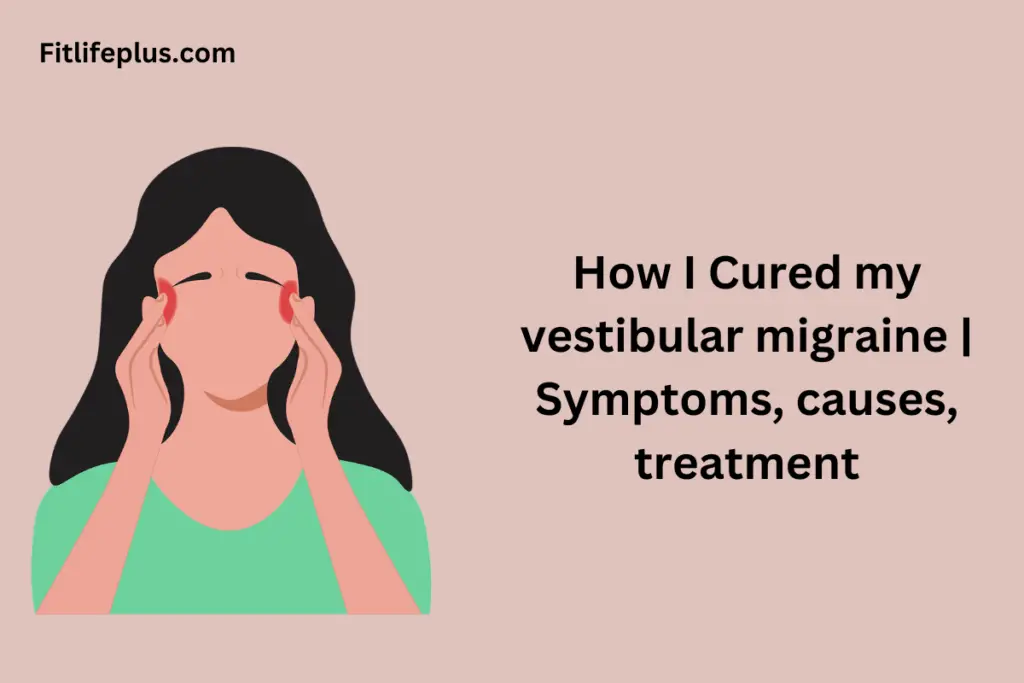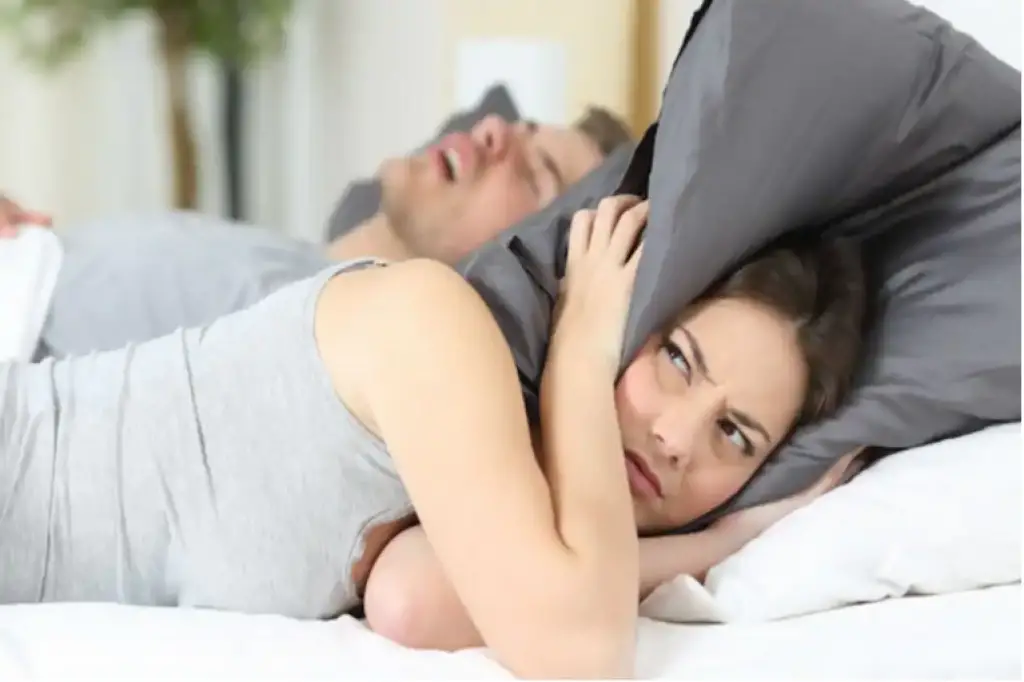Migraines and headaches are common neurological conditions. The typical migraine symptoms include moderate to severe pounding and throbbing headaches. Vestibular migraines may not have headaches in combination with vestibular symptoms like vertigo imbalance, vomiting, and nausea.
A vestibular migraine is a nervous system issue that results in repeated dizziness. It is common in people who have a history of migraines. In the case of vestibular migraines, you may not always have headaches.
Doctors use different types of names for the vestibular migraine. Some general terms are migrainous vertigo, Migraine related vestibulopathy, and migraine-associated vertigo. In the article, you will find details on the symptoms, causes, and how I cured my vestibular migraine.
What is vestibular migraine?

The word vestibular refers to the body’s inner ear and balance system. It is related to the symptoms of vertigo. Vertigo is falling, moving, spinning, or even when your position is still.
It can also sense that the world is moving around. The condition can come randomly or be triggered by specific factors like moving your head, looking at objects, or placing your head in a particular situation.
Some people who experience migraines may also experience an unusual symptom, Alice in Wonderland syndrome. In this syndrome, you may find things bigger and smaller than their actual size.
Vestibular migraine is also a common reason behind vertigo in adults. In addition, vertigo can happen at any point during a migraine attack.
Symptoms of vestibular migraine
The main symptom of the vestibula migraine is inconsistent dizziness and headaches. It comes and goes, and sometimes, you don’t even have a headache. The vestibular refers to the inner ear. It controls your balance and earring. Vertigo refers to the problems of the inner ear that may cause:
- Balance issues
- Vomiting
- Nausea
- Extreme motion sensitivity
- Dizziness that may last more than a few minutes
- Confusion or disorientation feeling
- Sound sensitivity
- An unsteady feeling like you are in a boat
- Feeling dizzy or sick when you move your head, body, and eyes
In this condition, you may not have any migraine but face symptoms like dizziness or balance issues. At other times the vertigo symptoms happen during or after the headache. Sometimes you may have migraines for years before the vertigo symptoms even begin.
Causes of vestibular migraines
Vestibular migraines, like other syndromes, can also run in families. However, there is a clarification of the complex migraine mechanism. But it’s known that women suffer more than men, and its symptoms get worse around menstruation.
Besides, people vulnerable to vestibular migraines also experience episodes of migraine triggers like alternation in sleeping patterns, MSG, menstrual cycle, and MSG.
Diagnosis of vestibular migraine
No blood or imaging test of the vestibular migraine can tell if you have the condition. The International headache society and other organizations have recently set the criteria for diagnosing this disorder.
You may have a vestibular migraine if you have the following symptoms:
- If you have at least five or more episodes of vertigo, that give you a feeling of continuous spinning. It provides the same feeling as motion sickness and fainting.
- This feeling can last anywhere between 5 minutes to 72 hours.
- You may have moderate to severe symptoms. It means that it can be so bad that you won’t be able to do any regular chores or everyday tasks.
- Half of the time, you will experience the following migraine system as well:
- Light or sound sensitivity
- Flashing or shimmering light in your vision
- Headache can be one-sided, it can be moderate to extreme, and it may get worse when you do anything.
How I cured my vestibular migraine?
You might be wondering what to do if you are recently diagnosed with vestibular migraines. Fortunately, there are many ways to treat vestibular migraines.
- Observe your triggers
Some common triggers include certain foods, lack of sleep, and high-stress levels.
02. Take supplements
According to the research, riboflavin, and magnesium can reduce the frequency and intensity of migraines.
03. Take over-the-counter prescription drugs to prevent headaches. Talk to your doctor about the medications that can help your condition.
04. Attend physical therapy with a vestibular specialist.
The vestibular migraine treatment is similar to the treatment of other migraine headaches. The use of meclizine and other abortive medications can suppress the vestibular system. But its use should be minimized and occasionally used, for example, in a severe migraine episode.
The doctor may recommend one or more of these medications if a person has frequent attacks. These medications include:
- Topiramate
- Beta-blockers
- Topiramate
- Serotonin or norepinephrine reuptake inhibitors
- Calcium channel blockers
FAQ’s
Does vestibular migraine ever go away?
There isn’t any cure for vestibular migraines. But by getting help from an experienced headache specialist, patients can learn the management of their triggers. It helps them live a happy everyday life.
Why did I start getting vestibular migraines?
Vestibular migraines start the episodes of dizziness such as spinning, rocking, swaying, floating, internal motion, and lightheadedness. They often occur randomly but are also triggered by skipping meals, sleep issues, stress, dehydration, and other illnesses.
Is vestibular migraine regular?
Migraine and headaches are the common neurological condition. The common migraines involve moderate to severe pounding or throbbing headaches. Vestibular migraines may or may not come with headaches; common vestibular migraine symptoms include vertigo imbalance, vomiting, and nausea.
Which vitamin deficiency causes vestibular migraine?
According to the research on vestibular migraine patients, it has been found that they have low levels of vitamin D. It means vitamin D deficiency is somehow related to vestibular migraine.
Conclusion
How I cured my vestibular migraine? If you have a vestibular migraine, consult a headache specialist to diagnose your condition. Discuss the available prevention and treatment options according to your need. To locate an experienced healthcare provider, you can use a tool to find a doctor with good working experience with patients with similar cases.
After scheduling an appointment, bring your headache journal with you.




